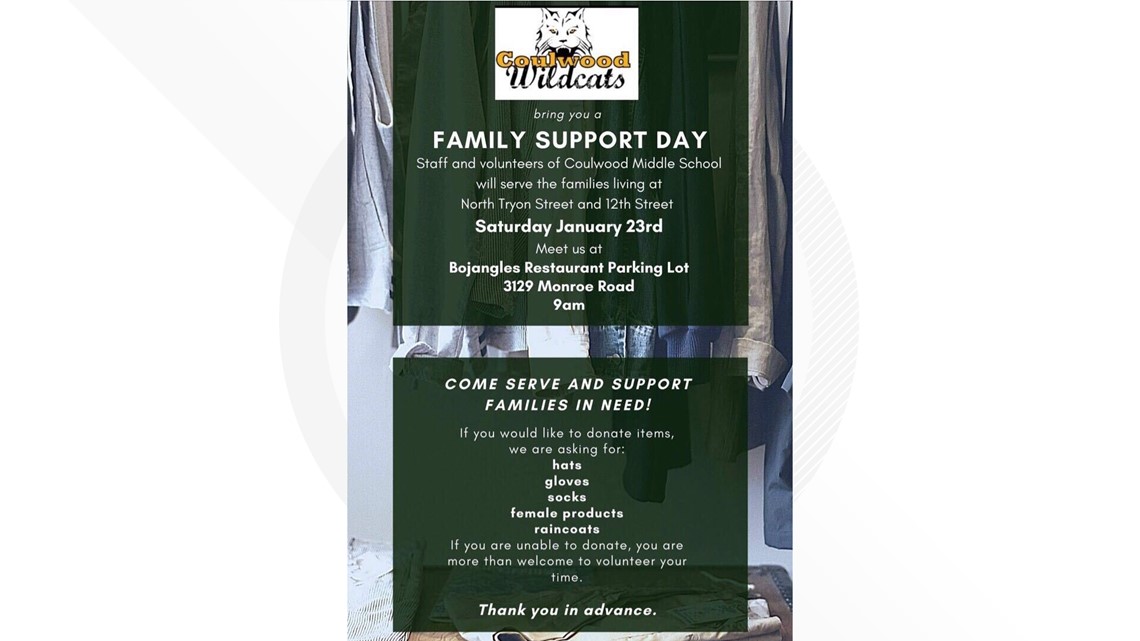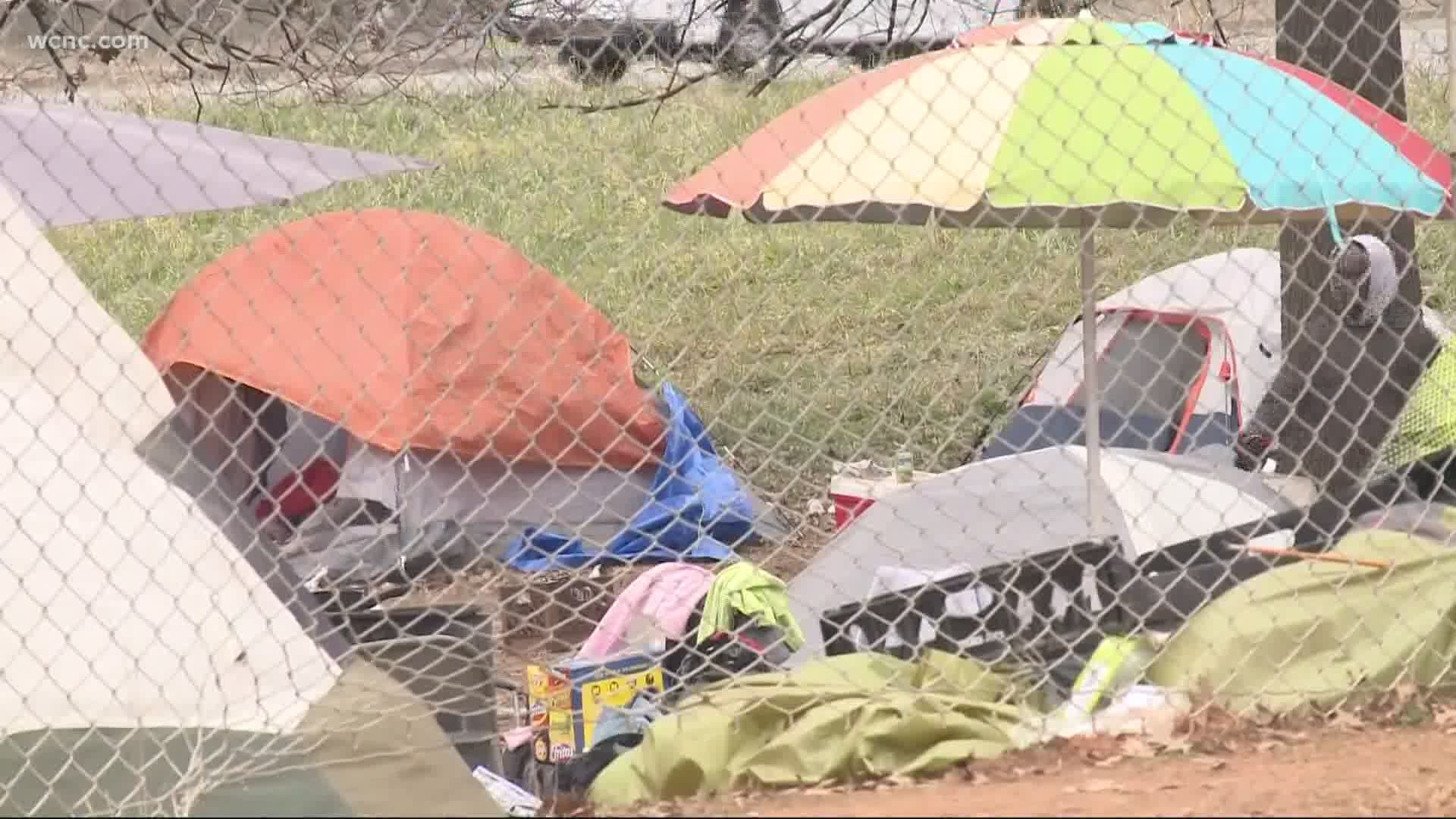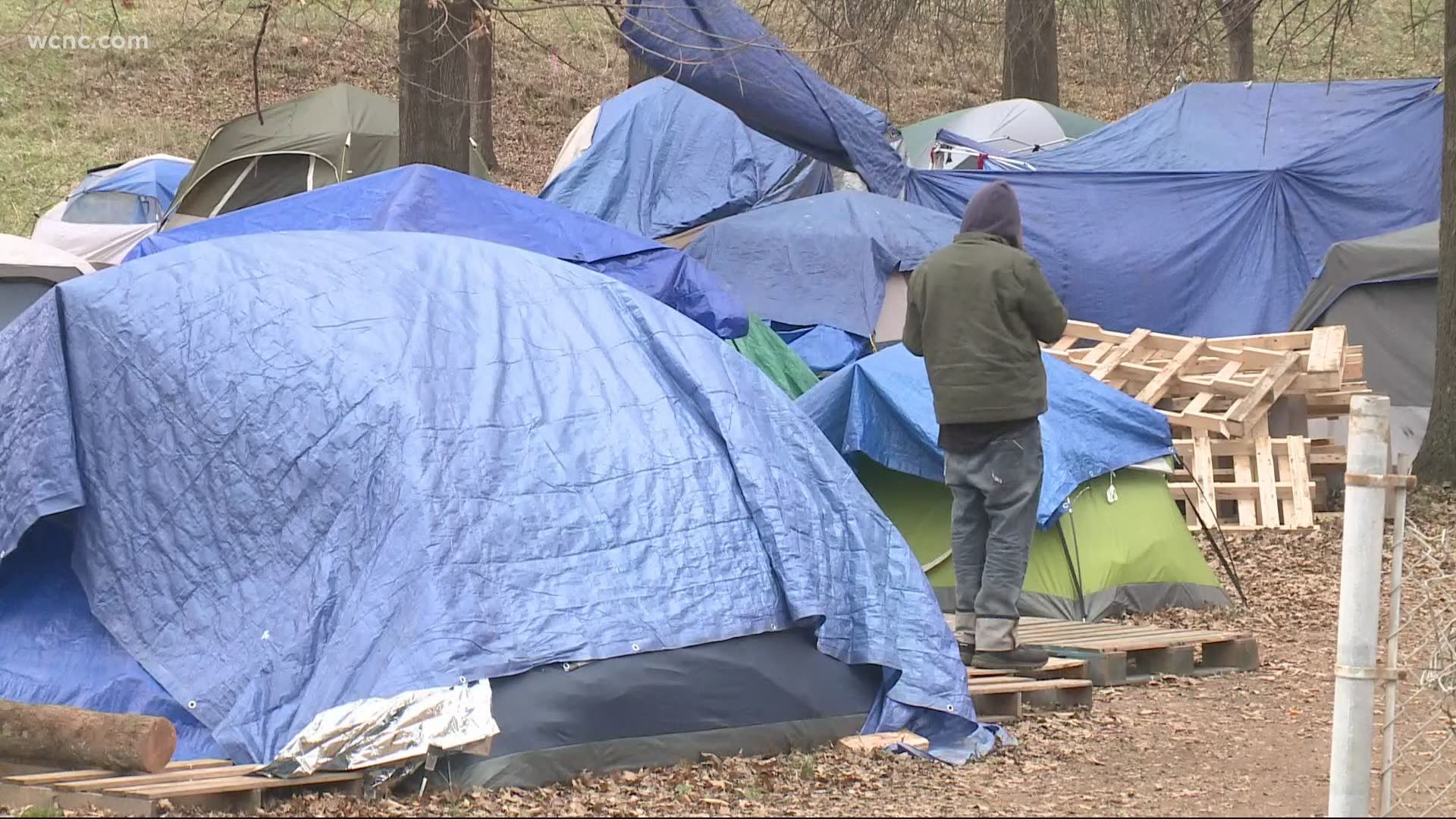CHARLOTTE, N.C. — Mecklenburg County held a virtual town hall Thursday evening to address the homelessness issue that has become more visible during the pandemic.
Groups of tents have form communities of their own across Uptown. The county reports as of Jan. 15 there are 84 individuals living in Tent City.
“Really it broke my heart what I was seeing out there,” said Jessika Morgan with Survivors Outreach Ministries.
Morgan said she knows what it's like to need help.
“I have found before in the past myself homeless due to domestic violence and needing services,” Morgan said.
It's why Morgan said she was happy to see the community step up.
"Numerous organizations, numerous resources have been bringing supplies food water everything,” Morgan said.
But, now Morgan fears it may be doing more harm than good.
"Now it's become an enabling issue," Morgan said. "Some of the people in tent city have even said, 'I don’t want to go into a shelter because I get more help out here in tent city.'”
Deborah Woolard with Block Love Charlotte who helps serve those in the tents says community support is vital.
"What I’m doing is helping them survive because you don’t know their situation, you don’t know their story,” Woolard said.
Woolard said those in the tents are set up where they are because they're close to organizations that provide assistance.


"They know they can get up in the morning and just walk to resources,” Woolard said.
Randall Hitt with the organization Roof Above said they do have 19 shelter openings, but find some don’t use them.
"We find varying reasons why people may not choose to access shelter," Hitt said. "To name a few of the most prevalent: struggles with mental health challenges might make it more difficult to sleep near others in a shelter environment; concerns about COVID-19 virus might make an outdoor environment more appealing; the structure of a shelter setting might be difficult when someone is in the cycle of substance use."
Woolard believes the county needs to provide them a safe space.
"What can we do to help our neighbors that choose to be out here be in a safe location that keeps them near the resources," Woolard said.
Morgan said the focus should be getting them long term housing stability.
"Personally as a person in recovery, I know how dangerous it can be to enable people because we won't go get help," Morgan said.


